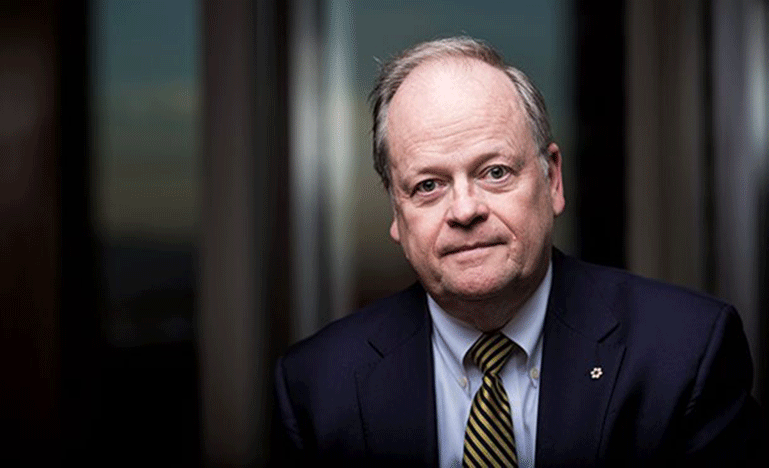Measuring what works
A conversation with former Supreme Court Justice Thomas Cromwell on the McLachlin Fund and its focus on evidence-based solutions to improve access to justice.

The Right Honourable Beverley McLachlin Access to Justice Fund was launched in 2019 to help support innovative projects that improve access to civil and family justice in Canada. The fund is expected to finalize grant application decisions by early December 2021. In the meantime, CBA National caught up council member and former Supreme Court Justice Thomas Cromwell to discuss the fund’s priorities and how the conversation around access to justice has changed since the pandemic hit.
CBA National: First, what is unique about the McLachlin Fund, and what sets it apart among projects that address access to justice?
Hon. Thomas Cromwell, C.C.: Number one is the person whose legacy it honours. Chief Justice McLachlin made access to justice a big priority of her extrajudicial work. A number of us felt that that was an important signal from the top of the legal system. We wanted to do something to honour her and make some tangible contribution to that work. I hope that every lawyer who can do so will provide some support, both as a tribute to former Chief Justice McLachlin, and as part of our professional efforts to improve the legal system for the people who need it. Second, we're hoping that the McLachlin Fund can focus on scalable projects. In other words, the priority will be given to projects that have a defined problem, a solution that we want to try, and a way of telling whether or not it worked. We laugh about that, but that's fairly rare in the justice system. We often will try a lot of things but are never really sure what their impact was after the fact. We're hoping that we can encourage innovation and also evaluation.
N: What does scalable mean?
TC: If it works in Napanee, Ontario, it'll probably work in Osoyoos [BC]. In other words, we're hoping these projects work like pilots. And one of the things we identified as we were setting up the fund was that there's a real shortage in the justice world for innovation funding. Years ago, when I was starting my work with the [Canadian Forum on Civil Justice's] Action Committee, speaking to a whole roomful of judges and court administrators, I asked, "What percentage of your budget do you spend on innovation?" Everybody in the room, except me, laughed, which I think underlines the dimension of the problem. Things have changed a bit for the better since then, but we still are starved for money to try an idea that has a very defined purpose. We're also short of money to evaluate the success or failure of the initiative.
N: What happens when a project is measurably successful as a pilot? Presumably, whoever is behind it would have to fetch funding elsewhere?
TC: One of the reasons we're so excited about having our administrative work done by the Law Foundation of British Columbia is that we want to have very close liaison with law foundations, as they are major funders for justice-focused projects in several provinces. We also hope that if a project proves itself, it'll strengthen the case for government funding.
N: Do you think governments are more inclined today bend their ear to the necessity for funding justice issues?
TC: I'd like to think so, and I also believe that government is almost always willing to listen to a good business case. And I don't want to suggest that the administration of justice is a business, but taking a business-like approach, we have to look at efficiency. We have to look at cost. We have to look at satisfaction from the users' point of view. Of course, we also have to look at substantive outcomes and observing independence and impartiality and all of those important things.
N: How is the conversation around access to justice changing?
TC: First, access to justice challenges have a differential impact on groups. It doesn't affect me very much in my day-to-day life, certainly compared to a mother with two children living on social assistance. Or to an Indigenous person seeking redress for any number of things. A lot of people who need the kind of support and services that the legal system ought to be able to provide can't get it. And that inability to get it is not evenly distributed through society by any means
Second, I think we've been forced to recognize that we can do things that we wouldn't have imagined were possible to do before January of 2020. So I'm excited about the next phase — people have been forced to innovate and there will be more openness to innovation. My hope is that we'll be smart about how we do it as we dig out of the backlog for the next X years. I'm cautiously optimistic that we'll put that knowledge to use for the betterment of the system over the longer term.
N: We tend to think of the solutions to these problems as technological. But is there more to it than that?
TC: The fund's objectives are focused on access to justice — broadly defined — and innovation. I can't imagine that technology won't be a piece of that, but it's not necessarily the focus. We deliberately left the terms of reference very broad to encourage innovation in all of its forms. And I'm hoping that projects will be able to focus [on the user]. But I don't necessarily think that our projects need to be huge scale or glamorous: They just need to be practical.
This interview was edited and condensed for publication.
For information about donating to the McLachlin Fund please contact info@mclachlin.ca or www.vancouverfoundation.ca/mclachlinfund


